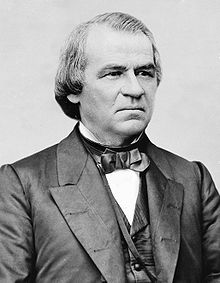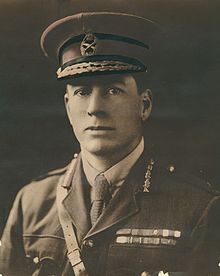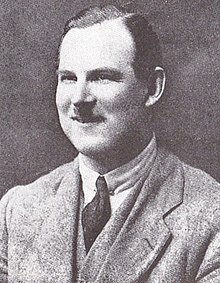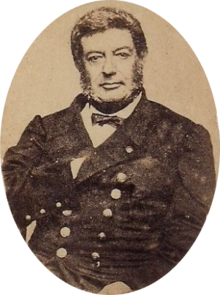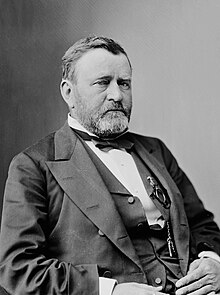Portal:History
The History Portal
History (derived from Ancient Greek ἱστορία (historía) 'inquiry; knowledge acquired by investigation') is the systematic study and documentation of the human past. History is an academic discipline which uses a narrative to describe, examine, question, and analyze past events, and investigate their patterns of cause and effect. Historians debate which narrative best explains an event, as well as the significance of different causes and effects. Historians debate the nature of history as an end in itself, and its usefulness in giving perspective on the problems of the present.
The period of events before the invention of writing systems is considered prehistory. "History" is an umbrella term comprising past events as well as the memory, discovery, collection, organization, presentation, and interpretation of these events. Historians seek knowledge of the past using historical sources such as written documents, oral accounts or traditional oral histories, art and material artifacts, and ecological markers.
Stories common to a particular culture, but not supported by external sources (such as the tales surrounding King Arthur), are usually classified as cultural heritage or legends. History differs from myth in that it is supported by verifiable evidence. However, ancient cultural influences have helped create variant interpretations of the nature of history, which have evolved over the centuries and continue to change today. The modern study of history is wide-ranging, and includes the study of specific regions and certain topical or thematic elements of historical investigation. History is taught as a part of primary and secondary education, and the academic study of history is a major discipline in universities.
Herodotus, a 5th-century BCE Greek historian, is often considered the "father of history", as one of the first historians in the Western tradition, though he has been criticized as the "father of lies". Along with his contemporary Thucydides, he helped form the foundations for the modern study of past events and societies. Their works continue to be read today, and the gap between the culture-focused Herodotus and the military-focused Thucydides remains a point of contention or approach in modern historical writing. In East Asia a state chronicle, the Spring and Autumn Annals, was reputed to date from as early as 722 BCE, though only 2nd-century BCE texts have survived. The title "father of history" has also been attributed, in their respective societies, to Sima Qian, Ibn Khaldun, and Kenneth Dike. (Full article...)
Featured picture
Did you know (auto generated)

- ... that "Spotlight", the best-selling digital single in Chinese music history, saw its Douban rating drop from 10.0 to 3.2 less than two days after its release?
- ... that Pat Gozemba married her wife while researching a book about the history of the struggle for equal marriage in Massachusetts?
- ... that Timo Meier became the first player in San Jose Sharks franchise history to score five goals in one game when he was 25?
- ... that public health measures and advances in medical science in modern human history helped raise global life expectancy from about 31 years in 1900 to over 66 years in 2000?
- ... that Hanning Schröder, who in the 1930s played historical instruments in the Harlan Trio together with his wife, was recognised as Righteous Among the Nations?
- ... that fifteen future Pro Football Hall of Fame players have been drafted by the Detroit Lions?
Wail Mohammed al-Shehri (Arabic: وائل الشهري, romanized: Wāīl ash-Shehrī; or Alshehri; July 31, 1973 – September 11, 2001) was a Saudi school teacher and terrorist hijacker. He was one of five hijackers of American Airlines Flight 11, which was flown into the North Tower of the World Trade Center as part of the September 11 attacks.
Wail al-Shehri was an elementary school teacher from Khamis Mushait in the Asir region of Saudi Arabia. In early 2000, he traveled to Medina to seek treatment for mental problems. He and his younger brother Waleed traveled to Afghanistan in March 2000 and joined an Al-Qaeda training camp. The brothers were chosen, along with others from the same region of Saudi Arabia, to participate in the September 11 attacks. Once selected, al-Shehri returned to Saudi Arabia in October 2000 to obtain a clean passport, then returned to Afghanistan. In March 2001, he recorded his last will and testament on video. (Full article...)
On this day
November 21: Armed Forces Day in Bangladesh
- 1894 – First Sino-Japanese War: After capturing the Chinese city of Port Arthur, the Japanese army began a massacre of the city's soldiers and civilians.
- 1959 – American disc jockey Alan Freed (pictured), who popularized the term rock and roll, was fired from WABC-AM for his role in the payola scandal.
- 1964 – The Verrazzano-Narrows Bridge, connecting Staten Island and Brooklyn in New York City, opened to traffic as the longest suspension bridge in the world at the time.
- 1974 – Bombs exploded in two pubs in central Birmingham, England, killing 21 people and leading to the imprisonment of six people who were later exonerated.
- 2009 – An explosion in a coal mine in Heilongjiang, China, killed 108 miners.
- Voltaire (b. 1694)
- Hetty Green (b. 1834)
- Milka Planinc (b. 1924)
- Catherine Bauer Wurster (d. 1964)
Selected quote
I hate this fast growing tendency to chain men to machines in big factories and deprive them of all joy in their efforts — the plan will lead to cheap men and cheap products.
— Richard Wagner, 19th century German composer
Related portals
More Did you know...
- ... that the Japanese aircraft carrier Amagi (wreck pictured) capsized on 29 July 1945 as a result of cumulative damage inflicted by American airstrikes on 24 and 28 July?
- ... that Scandinavian influence in Scotland, still evident today, was probably at its height during the time of Thorfinn the Mighty?
- ... that, after the 2003 invasion of Iraq, the Bassetki statue, which is more than 4,200 years old, was found in a cesspool?
- ... that in medieval art, angels were often depicted wearing feather tights?
- ... that 49% of German military losses happened in the last 10 months of the Second World War in Europe?
- ... that Joshua L. Goldberg, the first rabbi to serve as a World War II U.S. navy chaplain, was a Russian army deserter?
- ... that Richard Nixon chose the Wilson desk as his Oval Office desk because he believed it was used by Woodrow Wilson, informed that it was used by Henry Wilson, Vice President under Ulysses S. Grant, but actually bought by Garret Augustus Hobart, 24th Vice President of the United States under President William McKinley?
- ... that some of the nominally silver Roman coins from the Bredon Hill Hoard only have a 1% silver content?
Topics
Categories

History • By period • By region • By topic • By ethnic group • Historiography • Archaeology • Books • Maps • Images • Magazines • Organizations • Fictional • Museums • Pseudohistory • Stubs • Timelines • Chronology • People • Wikipedia historians
WikiProjects
![]() WikiProject History •
Ancient Near East • Australian History • Classical Greece and Rome • Dacia • Former countries • History of Canada • Chinese history • European history • Heraldry and vexillology • Indian history • Jewish history • Medieval Scotland • Mesoamerica • Military history • Middle Ages • History of Science
WikiProject History •
Ancient Near East • Australian History • Classical Greece and Rome • Dacia • Former countries • History of Canada • Chinese history • European history • Heraldry and vexillology • Indian history • Jewish history • Medieval Scotland • Mesoamerica • Military history • Middle Ages • History of Science
WikiProject Time • Days of the Year • Years
WikiProject Biography • Composers • Political figures • Saints • United States Presidents
Things you can do
 |
Here are some tasks awaiting attention:
|
Associated Wikimedia
The following Wikimedia Foundation sister projects provide more on this subject:
-
Commons
Free media repository -
Wikibooks
Free textbooks and manuals -
Wikidata
Free knowledge base -
Wikinews
Free-content news -
Wikiquote
Collection of quotations -
Wikisource
Free-content library -
Wikiversity
Free learning tools -
Wiktionary
Dictionary and thesaurus



